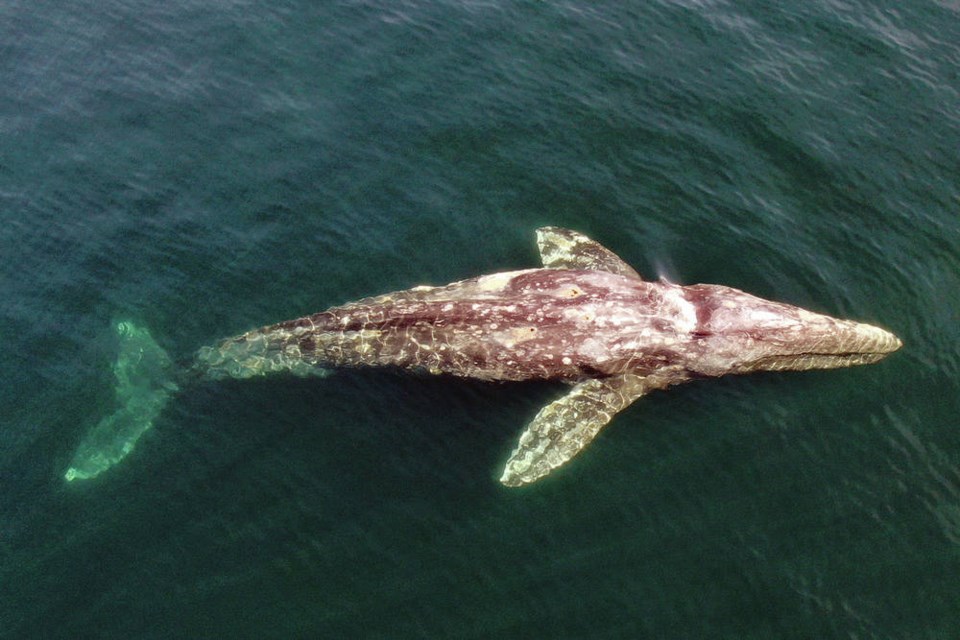A rare sighting of an emaciated grey whale in the waters off the Ogden Point Breakwater last week and the discovery of a dead grey whale on a northwest Vancouver Island beach over the weekend might be part of what marine scientists are deeming an “unusual mortality event” that began two years ago.
Grey whales (Eschrichtius robustus) are no strangers to the west coast of Vancouver Island at this time of the year — some of the three populations migrate from their breeding grounds in the waters off Baja California to their summer feeding grounds in the Bering and Chukchi Sea off Alaska.
The mammals make one of the longest annual migrations in the animal kingdom, travelling up to 7,000 kilometres each way.
Jackie Hildering, communications director and humpback researcher with the Marine Education and Research Society in Port McNeill, said it’s not unusual to see a skinny whale at this time of the year. “When they migrate, they eat little to no food and lose an incredibly large amount of body mass,” she said. “Having said that, a whale can have an underlying medical condition, so we can’t know for sure unless it dies and is washed up on shore.”
Causes of mortality can include ship strikes, entanglement, toxin accumulation, disease/infections and malnutrition.
What marine biologists can’t explain is the unusually high number that have washed up in the last two years.
More than 430 grey whales have washed up on beaches in Mexico, California, Oregon, Washington, British Columbia and Alaska since 2019. The overall mortality number is impossible to determine, as others that die sink to the bottom of the sea.
Whale researchers are calling the unexplained deaths an “unusual mortality event.”
“There is something going on,” said Hildering, adding the leading hypothesis is that climate change has led to a reduction in the whales’ primary food, leaving them with little or no fuel for their migration.
Grey whales are primarily bottom feeders, rolling on their sides to filter anthropods through 130 to 180 coarse baleen plates.
On their annual spring journey north, the whales have been observed feeding on swarming mysid (shrimp-like crustaceans) found among kelp beds and crab larvae along the sandy beaches on the west coast of Vancouver Island and Haida Gwaii.
In local waters, a healthy adult female can grow up to 12.5 metres in length and weigh up to 35 tonnes.
Grey whales were once hunted to near extinction before international conservation measures were enacted in the 1930s and 1940s.
In 2017, the Committee on the Status of Endangered Wildlife in Canada recommended that grey whales transiting and/or feeding off B.C.’s coast be recognized as three populations: the Northern Pacific Migratory, Pacific Coast Feeding Group and the Western Pacific. Of the three, the latter two, with populations of 243 and 174 respectively, are considered endangered.
The emaciated grey whale spotted last week has not been sighted again.
The beached female grey whale has been reported to the Department of Fisheries and Oceans Canada so a necropsy can be performed to add to the body of knowledge on cetaceans.
“Our big neighbours are in trouble,” said Hildering.
Boaters can help, she said, by keeping a safe distance from distressed whales and reporting any sightings to the Department of Fisheries and Oceans’ incident reporting line at 1-800-465-4336.
parrais@timescolonist.com



